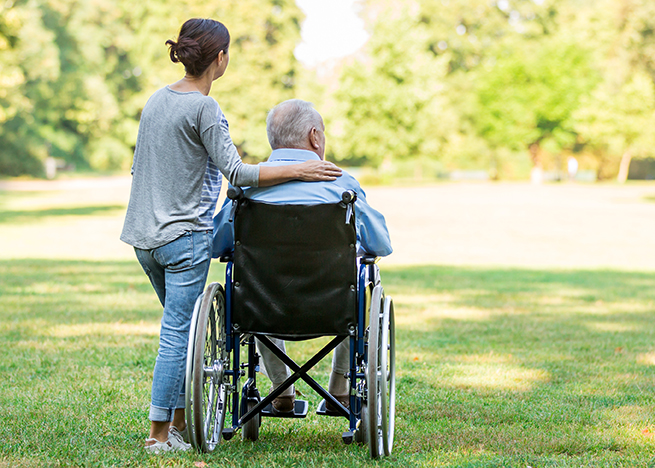Tips for Caring for Aging Parents
By Deborah Dobbs, M.A. | Contributor
My parents have a book on an end table titled The Joys of Getting Older. It’s a book of blank pages. This speaks volumes about my mother’s feelings regarding aging, especially as the roles we play in each other’s lives begin to shift.
Aging, role reversal and caregiving are a part of life. Watching caregiving friends in their journeys alongside their parents, I wonder how close my family is to this time of life, and I sometimes feel apprehensive about what is to come. Every situation is different, but I’ve seen the dark circles under their eyes, the sadness along with compassion, love and patience. I’ve also seen the laughter, heard wonderful stories of love and listened as my friends told happy tales about their mom or dad. Observing the impact aging has on health, independence and safety stirs up difficult emotions and creates stress. I, like every other soon to be sandwich generation caregiver, must remember to focus on more than the negative.
Becoming a family caregiver is a life altering experience. How positive or negative that experience is really depends on how prepared we are and how quickly we can adapt to changes that seem to come out of nowhere.
One of the areas that not many are prepared for is Caregiver Guilt. Guilt for not being able to do enough. Guilt for feeling angry or frustrated about the new role, especially when our parent expresses resentment for our efforts without a hint of gratitude. Guilt for not having enough time or energy to devote to children or a spouse—perpetually postponed vacations, date nights or intimacy—and guilt for taking any time to nurture those relationships or oneself.
Perhaps the person who has taught me the most about the caregiving experience is my longtime friend Scott Silknitter, the founder of Caregiving 101. He entered the world of caregiving at a young age after his father was diagnosed with Parkinson’s at age 44. Quickly, he was disappointed by the lack of caregiving educational tools and resources and readily available, affordable emotional and practical support. He decided to do something to help others avoid the same struggle. For nearly a decade now, his company has helped tens of thousands of family caregivers with tips on every aspect of caregiving—from how diet affects incontinence to things to do around the home to prevent falls, from recognizing non-verbal cues to simple steps to reduce caregiver guilt and stress.
A theme woven into their Caregiver programs is to understand that we cannot do everything on our own. We need to give ourselves permission to accept help when it is offered and seek it out when it is not readily available.
Tips that can help both you as a caregiver and your older parent:
1| Educate Yourself and Don’t Look a Gift Horse in theMouth Start by signing up for the no gimmicks and no strings attached Caregiving 101 membership site. You’ll find an abundance of helpful articles, guides, checklists, tips and videos. There’s even a caregiver’s academy for professionals or family members.
2| Seek Help for Depression
If you believe your parent is depressed, don’t be afraid to seek treatment. Integrative Reminiscence therapy or group therapy are excellent options. Don’t let the stigma stop you from pursuing help.
3| Improve Communication Through Therapy
As family roles change, family therapy can be very helpful in improving communication and understanding between you and your parents. Individual therapy can help you manage stress and any guilt involved with meeting your own wants and needs. Many counseling agencies now offer video sessions, so you don’t have to cram drive time into your schedule.
4| Use Local Resources and Find What Works Best for Your Family New community resources pop up monthly. Make use of a senior center, a city recreation center or gym, or find an Elder Day Out Group for the parents to go to on a consistent basis.
5| Focus on the Positive
Focus more on what your parents CAN still do instead of what they can no longer do. Adapt and empower them as much as possible/practical.
6| Stay Positive and Keep Your Sense of Humor
Easier said than done, but smiles are contagious. One of the things I’ve always admired about Scott Silknitter is his seemingly unshakeable positive attitude and his wit.
Scott constantly reminds all caregivers that, “You get more with an ounce of sugar than you do with a pound of vinegar, and laughter really is the best medicine.
It’s a glass half full approach we should all consider.
Editor’s Note: Deborah Dobbs, M.A. is a sociologist with 21 years experience at The Counseling Place, a non-profit agency dedicated to strengthening emotional health in people of all ages. You can reach her at 469.283.0242 or www.counselingplace.org.


